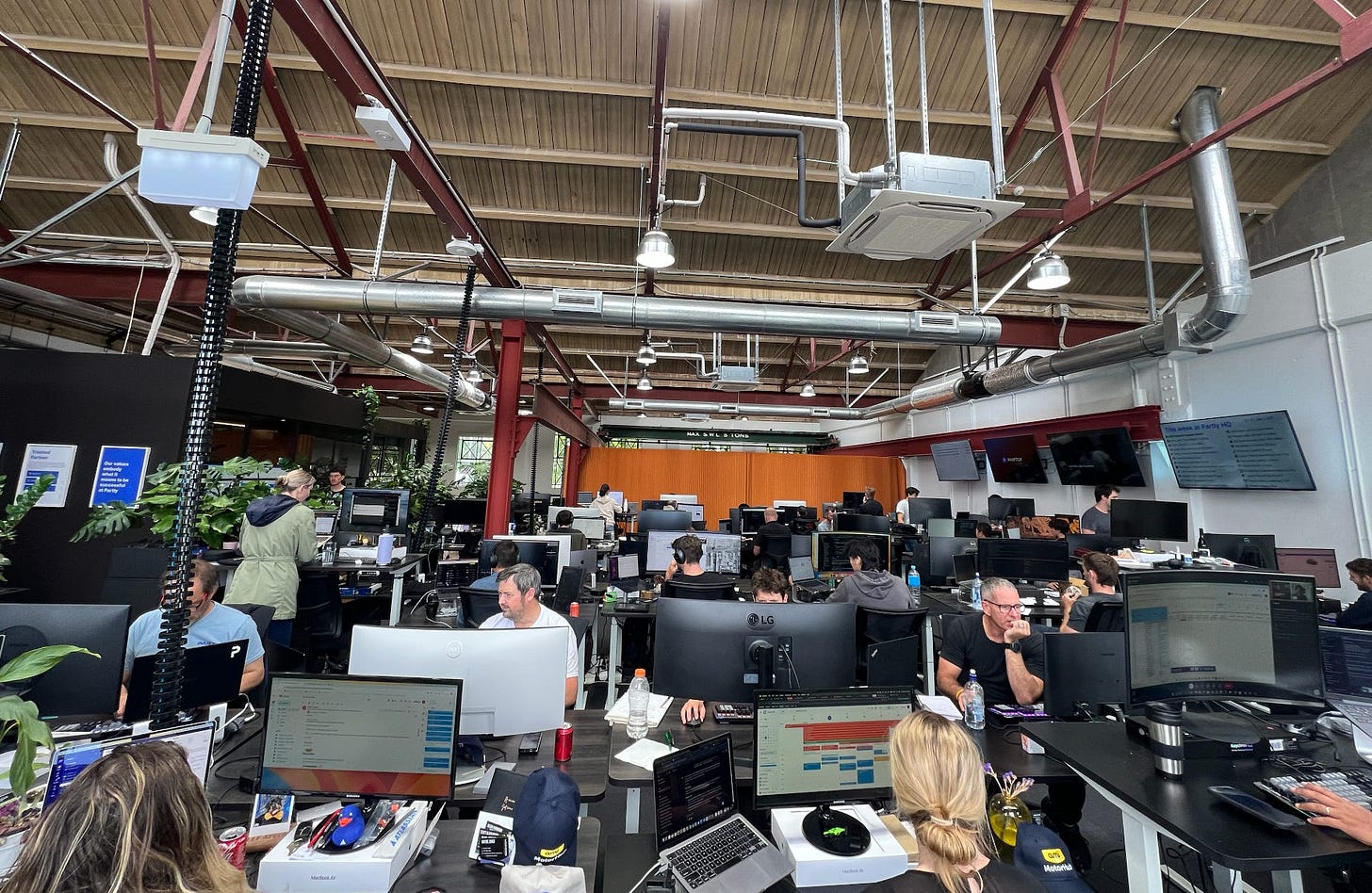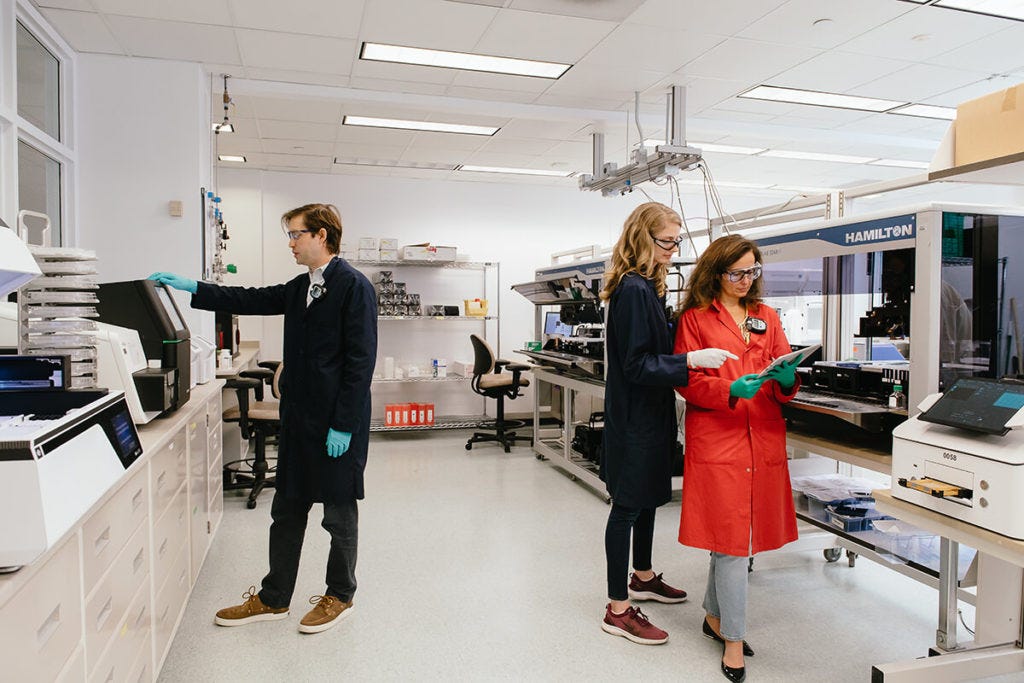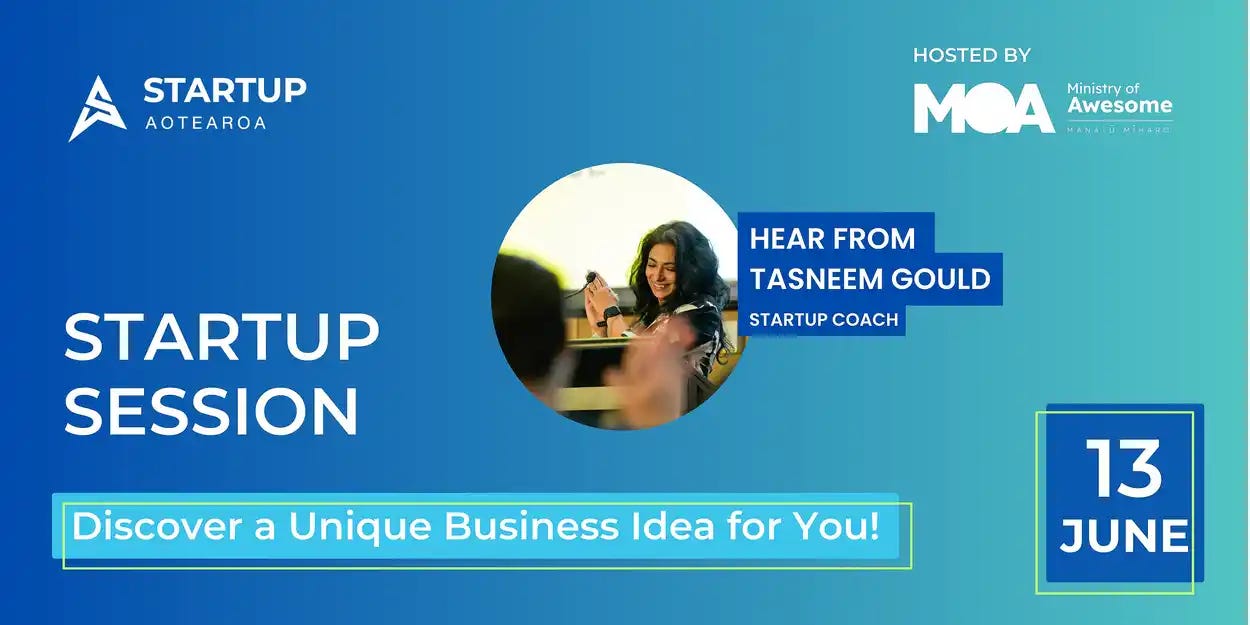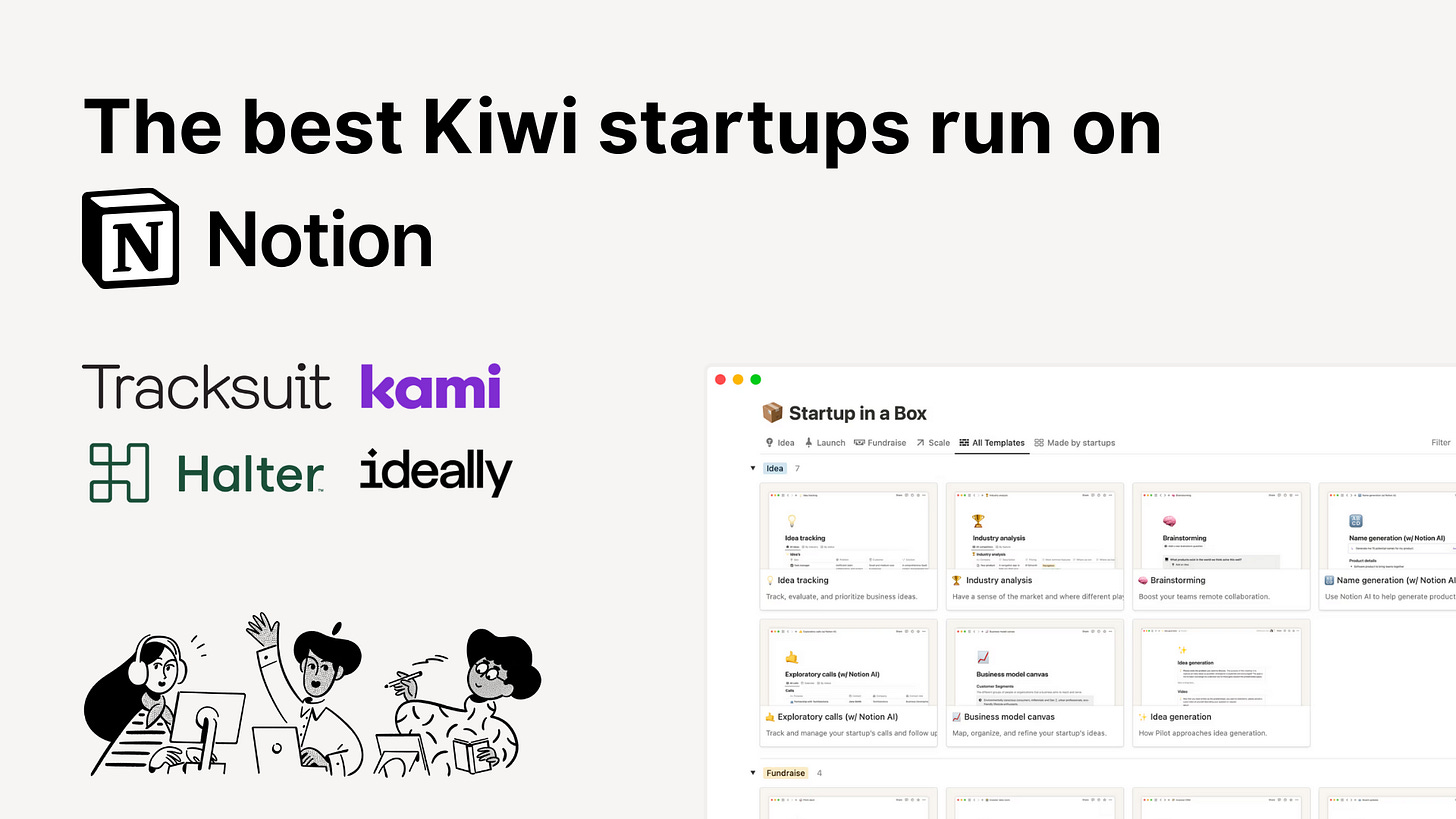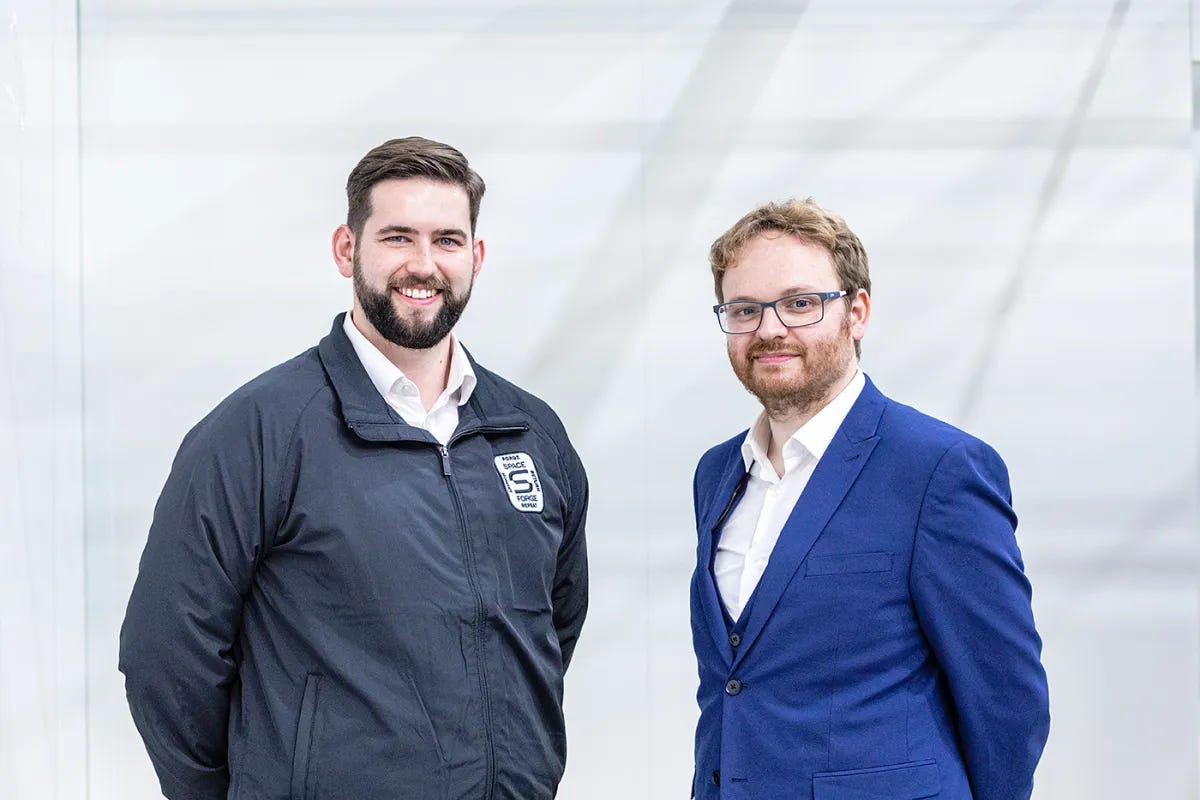Partly's Harry Uffindell on why you shouldn't 'optimise for average'
PLUS: Shakeup at LanzaTech, Rocket Lab makes major play and stellar semiconductors on the way?
Good morning startup land,
Happy Tuesday!
Hope your long weekend was restful/exciting/productive or some magical combination of all three. It is another stuffed newsey today, including a special offer for Caffeine subs from our friends at Notion, so I will waste no time with waffle at the top and just get into it.
We’re starting with a guest column from Harry Uffindell, Chief People Officer at Partly (who has a great newsletter you should also check out) about why you shouldn’t be optimising for average.
As always, keep your stories, subs and updates coming. Got a press release, startup story, resource or founder you’d love to connect with the Caffeine audience? Drop me a line to finn@caffeinedaily.co
Finn and the Caffeine team
Partly’s Harry Uffindell on why you shouldn’t optimise for Average
By Harry Uffindell, Chief People Officer at Partly
The debate around remote work has collapsed into a false choice: fully remote, fully in-office, or "hybrid."
Each side is entrenched. Remote advocates cite autonomy and broader talent pools. In-office defenders talk about culture, collaboration, and speed.
Hybrid attempts to strike a balance, often resulting in the worst of both worlds: half-empty offices, scattered teams, and a diluted culture.
The problem isn't the options. It's the frame of the debate.
This isn’t a three-way standoff. It's a chess game. And most companies are missing the queen: Office-First with Flexibility (OFWF).
Why "Hybrid" Falls Short
Most hybrid models fail because they lack a strong centre of gravity. In the absence of a clear default, they gradually drift toward remote by default, often unintentionally.
Teams are told they can "choose" when to come in. The result: inconsistent attendance, thin in-office energy, fragmented collaboration.
You can't build a high-trust, high-performance culture if people are physically scattered without rhythm or purpose. Slack and Zoom solve logistics, but not culture. Not decision speed. Not the ambient learning that occurs when great people work shoulder to shoulder.
Nicholas Bloom’s research shows most employees like hybrid models about as much as getting an 8% pay raise. That’s useful to know, but preference isn’t the same as performance. Just because hybrid is popular doesn’t mean it works.
Designing your company around what’s liked, rather than what drives outcomes, is how performance degrades over time.
The nuance: good hybrid systems have a clear default and social expectation. Without that, you’re just paying for expensive offices no one uses, while creating a second-class experience for those who show up.
What "Office-First with Flexibility" Actually Means
Office-First with Flexibility flips the dynamic:
The default is working in-office.
Flexibility exists (for legitimate needs, e.g. appointments, childcare, focused work, etc.).
No attendance tracking, no rigid mandates. The goal isn’t to police; it’s to create an environment where high performers thrive.
No arbitrary quotas like ‘three days per week.’ Instead, there’s a clear expectation: if you're in a city with a core team, you're in the office most days. That’s the norm, not the exception.
This is not "hybrid.” This sets a cultural gravity around being together, while treating people like adults.
The idea that office-first is about managers ‘looking over shoulders’ is a lazy caricature. This isn’t about control. It’s about proximity, speed, and shared momentum.
Netflix captured this spirit early:
"People tend to do their best work when they understand the context, not when they’re tightly controlled."
Sam Altman reinforces the same principle:
"The most ambitious people often want to be around others who push them."
In OFWF, offices are not mandatory prisons. They are magnetic environments: energising, focused, high-trust spaces where the best work gets done, and people want to be.
Gen Z Isn't the Problem
There’s lazy thinking, such as "Gen Z won't tolerate the office."
That’s wrong.
The best Gen Z talents (like the best of any generation) want growth. They want to be around energy, learning, and ambition. They value proximity to mentors and colleagues who raise their bar.
Max Marchione doesn’t hedge:
“At Superpower, whilst we hire some people remotely, we only hire Gen Z talent in SF. To be hired that young, you need to be an outlier. Outliers want to learn as quickly as possible, grow their networks, and be in person.”
Grouping entire generations into one stereotype is bad strategy. Focus instead on exceptional performers, regardless of age. Exceptional young talent thrives in environments that offer speed, rapid learning, and visible ambition.
If you optimise for the average, you will get average. If you optimise for the exceptional, you will get greatness.
Not Everyone Will Like It; That’s the Point
Some people will prefer to work from home permanently. Sometimes for good reasons (childcare; commute), sometimes for less good ones (comfort; complacency).
That’s fine. But high-performance cultures should be unapologetically polarising. They’re not built to maximise comfort for everyone; they’re designed to attract the few who thrive in the environment.
Some people do great work remotely, and that's okay. But if the culture is built around in-person energy and ambition, it’s better to be clear. Not everyone will want in, and that’s the point.
Alex Fala said it well:
“Companies can't optimise for everything, and ambitious environments have particular requirements that aren't for everyone.”
You can’t turn average performance into greatness just by changing where someone sits. The best companies, like Stripe and Amazon, design their cultures around exceptionalism, not comfort.
Paul Graham put it sharply:
"The natural state of a startup is growth. If you're not growing, you're dying."
High-performance cultures need density: physical, intellectual, and emotional.
The Future: Strategic, Not Dogmatic
The future of work is not fully remote. Nor is it blindly in-office.
The future belongs to companies that think function by function, role by role, level by level:
A junior engineer onboarding? Office presence is invaluable.
A senior back-end developer working independently? May need more remote flexibility.
A product leader running cross-functional strategy? Needs to be in the room.
It’s not about ideology. It’s about effectiveness. It’s about setting a clear default: in-office, with flexibility, applied consistently in cities where we have critical mass.
Some roles, teams, or individuals may warrant exceptions; however, the bar is high, and the reasoning is clear.
This avoids the chaos of negotiating conditions on a case-by-case basis, while still enabling exceptional people to do exceptional work, wherever they are.
How We Operate at Partly
At Partly, we are Office-First with Flexibility:
Where we have critical mass, we invest heavily in offices worth coming to.
We encourage being in-office most of the week; no tracking, no rigid rules.
We hire the best people on the planet, even in cities without offices, if the role truly allows remote effectiveness.
We have high trust and high expectations; that’s the deal.
We believe proximity compounds trust, speed, learning and innovation. We believe frameworks beat chaos.
And we believe exceptional people deserve an environment optimised for their ambition, not one diluted for average preferences.
Conclusion: Build for Performance, Not Preference
The companies that thrive over the next decade won’t treat location as ideology.
They’ll design for what works: in-office by default, flexibility when it matters, and a culture grounded in trust and clarity.
The “remote vs hybrid vs office” debate is stale.
For startups that want to outperform, the move is clear: Office-First with Flexibility.
Originally published on Harry’s Newsletter here.
LanzaTech makes global leadership changes in bid to change fortunes: LanzaTech is making some serious changes to streamline operations and reduce costs, off the back of some fairly grim financial news in the past few months. The changes include the appointment of Sushmita Koyanagi as Chief Financial Officer and Amanda Fuisz as interim General Counsel. These changes, among others, are expected to result in annual cost reductions of approximately $1 million, as part of a company wide pivot to refocus the company on core competencies.
Rocket Lab makes major acquisition, begins to orbit Golden Dome: Speaking of some of our most famous scaleups, Rocket Lab has announced it will acquire the parent holding company of Goest, a developer of electro-optical and infrared technology used in missile warning and tracking, for around NZ$460 million.
In a press release announcing the deal the company said Geost’s “core capabilities” are precisely what’s needed for aspects of the proposed ‘Golden Dome’ defence network recently proposed by Donald Trump. It’s a fascinating step up from Rocket Lab as it throws its hat in the ring to build one of the most ambitious defence tech projects currently proposed. Of course whether the golden dome actually eventuates is a another question entirely. SpaceX seemed like it would be the frontrunner to work with Govt to deliver the dome but as Musk retreats from Washington, maybe a new lane is opening up. Full press release here.
Startup Session: Discover the idea which fits you - Do you have that itch to become a founder but can’t settle on exactly the idea which will become your startup? Check out an upcoming online event from our friends MOA where you’ll walk away with exciting new ideas and directions.
The event will include:
Finding Inspiration: Explore different ways to spark your creativity. A treasure hunt for cool business ideas!
Brainstorming Fun: Working with others to share thoughts and combine ideas. It’s a great way to understand where there are true opportunities that are untapped, or will work in the future even if they didn’t yesterday.
Validating your ideas: Help you effectively talk with potential customers, spot market signals, and confirm they're addressing genuine problems. This hands-on session will give founders techniques to ensure they're building solutions people actually want.
Walking Away with Ideas: By the end of the workshop, you’ll have several unique business ideas that you can start working on right away. Imagine leaving with a list of things you can do!
Check it out and register here.
The best Startups build on Notion. Enjoy 6 months of free Notion Business on us.
Notion gives early-stage teams everything they need to move fast, stay lean, and scale smarter—all in one AI connected workspace.
Notion replaces up to 8+ tools—like AI meeting note apps, Confluence, Trello, and Asana—saving founders thousands per year and reducing the chaos of scattered apps.
Tens of thousands of startups — including over 50% of Y Combinator and 90% of the Forbes Cloud 100 — use Notion to organise everything from fundraising to hiring to product roadmaps.
Join startups like Tracksuit, Kami, Halter & Ideally and get:
✅ The Startup in a Box templates to go from idea to exit
✅ AI-powered docs, wikis, and projects that scale with your startup
✅ 6 months free on Notion’s Business Plan (via Caffeine Daily) and save $14,000 via the Notion for Startups Program
🔍 Want proof? → See how companies run on Notion.
Space Forge closes $30m Series A to start stellar semiconductor operation: You guys (and anyone unfortunate enough to know me in real life) know I never shut the hell up about both the new space race and semiconductors so this is one startup story aimed directly at me.
Space Forge is a UK based startup looking to build critical materials for semiconductors in space and they just closed a (US)$30m Series A to start making that happen. We’re starting to butt up against the edges of what’s possible in terms of semiconductors made on Earth, to eek any more performance out we may need kinds of silicon wafer so perfect that they need to be constructed in the microgravity of space. It’s fascinating stuff and you should absolutely check out the TechCrunch wrap on them here. The sky is literally not the limit to ambitious startups like these guys.
That’s it for today, thanks for reading. Want to get in touch with a news tip, bit of feedback or just to chat? Email hello@caffeinedaily.co



